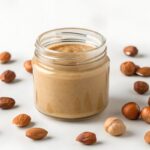Ever wondered why some folks hardly ever get sick while others catch every bug going around? It’s all about immune defense. Our immune system is our body’s personal army, tirelessly working to fend off invaders like bacteria, viruses, and other pathogens. But, how can we boost this natural shield to stay healthy and resilient? Let’s dive into the fascinating world of immune defense and uncover the secrets to bolstering our body’s defenses.
What Is Immune Defense?
Before we get into the nitty-gritty, let’s break down what immune defense actually means. At its core, immune defense refers to the mechanisms and processes our body uses to protect against disease-causing microorganisms. This system is complex and involves various organs, cells, and proteins working together to keep us safe.
The Key Players in Immune Defense
- White Blood Cells (Leukocytes): These are the frontline soldiers in your immune system. They circulate through your bloodstream and tissues, looking for harmful invaders.
- Antibodies: These proteins identify and neutralize pathogens like bacteria and viruses.
- The Lymphatic System: This network of tissues and organs helps rid the body of toxins and waste.
- The Complement System: A group of proteins that work with antibodies to destroy pathogens.
- Bone Marrow: The birthplace of white blood cells.
- The Thymus: Where T-cells (a type of white blood cell) mature and differentiate.
How Does the Immune System Work?
The immune system works in two main ways: innate immunity and adaptive immunity.
Innate Immunity
This is your body’s first line of defense. It’s a general defense mechanism that you’re born with. It includes physical barriers like skin and mucous membranes, as well as various cells and proteins that attack any foreign invader.
Adaptive Immunity
This is a more sophisticated and specific response that develops as we are exposed to diseases or immunized through vaccines. This part of the immune system remembers previous encounters with pathogens and is quicker and more efficient at attacking them in the future.
Boosting Your Immune Defense
Now that we’ve got a handle on what immune defense is and how it works, let’s talk about boosting it. There are several ways to enhance your immune system naturally.
Healthy Diet
You are what you eat, and your immune system is no exception. A diet rich in fruits, vegetables, lean proteins, and whole grains provides essential nutrients that support immune function.
Key Nutrients for Immune Health
- Vitamin C: Found in citrus fruits, strawberries, and bell peppers.
- Vitamin D: Get it from sunlight, fortified foods, or supplements.
- Zinc: Found in meat, shellfish, and legumes.
- Probiotics: Found in yogurt and fermented foods, these support gut health, which is crucial for immunity.
- Protein: Essential for the repair and growth of tissues, including immune cells.
Regular Exercise
Physical activity isn’t just for keeping your waistline in check; it’s also great for your immune system. Exercise can boost your body’s production of antibodies and white blood cells. Aim for at least 30 minutes of moderate exercise most days of the week.
Adequate Sleep
Sleep is your body’s time to repair and regenerate. During deep sleep, your immune system releases cytokines, proteins that help fight infections and inflammation. Strive for 7-9 hours of quality sleep per night.
Stress Management
Chronic stress can take a toll on your immune system. Techniques like meditation, yoga, deep breathing exercises, and even hobbies can help reduce stress levels.
Stay Hydrated
Water is essential for overall health and helps in the production of lymph, which carries white blood cells and other immune system cells. Make sure to drink plenty of fluids, especially water, throughout the day.
Good Hygiene Practices
Simple habits like washing your hands regularly, especially before meals and after using the restroom, can prevent the spread of germs. Also, keeping your living space clean and avoiding close contact with sick individuals can reduce your risk of infection.
Immune Defense in Action
Let’s consider a real-world scenario: Flu season. When a flu virus enters your body, your immune system swings into action. The innate immune response kicks in first, with white blood cells attacking the virus. If the virus manages to bypass this first line of defense, the adaptive immune system takes over. T-cells and B-cells come into play, with B-cells producing specific antibodies to target and neutralize the flu virus. This coordinated effort ensures that the virus is eradicated and also helps your body remember the virus for future encounters.
FAQs About Immune Defense
What are the signs of a weak immune system?
Common signs include frequent infections, slow wound healing, fatigue, and digestive issues. If you notice these symptoms, it’s wise to consult with a healthcare provider.
Can supplements boost my immune defense?
While supplements can help fill nutritional gaps, they’re not a substitute for a balanced diet. It’s best to get your nutrients from food. However, some supplements, like vitamin D, can be beneficial, especially in areas with limited sunlight.
Does exercise really help improve immune function?
Yes! Regular exercise promotes good circulation, which allows immune cells to move through the body more efficiently. It also helps reduce inflammation and stress hormones, both of which can negatively impact immune function.
How does stress affect my immune system?
Chronic stress can lead to the production of cortisol, a hormone that suppresses the immune system. Managing stress through relaxation techniques and hobbies can significantly improve your immune health.
Are there specific foods that can harm my immune defense?
Yes, high-sugar and high-fat diets can suppress your immune system. Processed foods, excessive alcohol, and too much caffeine can also have negative effects.
Summary
Our immune system is our body’s defense force, constantly working to keep us healthy. By understanding how it functions and what it needs to thrive, we can take steps to boost our immune defense naturally. A healthy diet, regular exercise, adequate sleep, stress management, and good hygiene practices are all crucial components. Remember, a strong immune system is your best defense against illness.
Authoritative Links
- National Institutes of Health: https://www.nih.gov
- Centers for Disease Control and Prevention: https://www.cdc.gov
- World Health Organization: https://www.who.int
- Harvard Health: https://www.health.harvard.edu
- Mayo Clinic: https://www.mayoclinic.org







